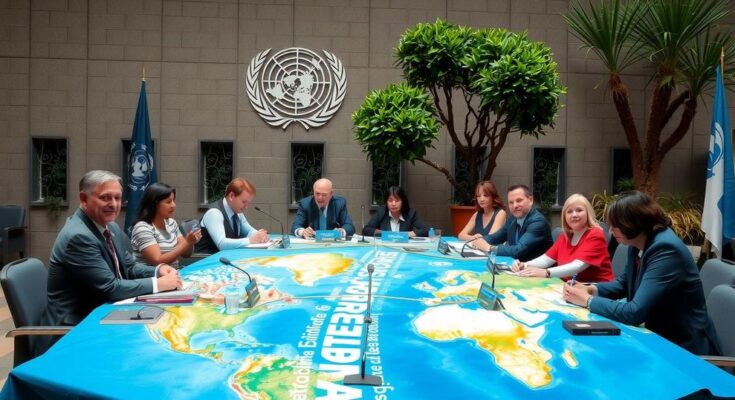This article discusses the efforts to preserve life and nature amid the climate crisis through indigenous knowledge, innovative solutions such as floating mangroves, and Nationally Determined Contributions (NDCs) that countries are implementing under the Paris Agreement. It particularly highlights the challenges faced by youth in areas vulnerable to desertification and land degradation.
In the context of the ongoing climate crisis, various innovative solutions are being explored to preserve both life and nature, particularly within vulnerable regions. A leader from an indigenous community in the Amazon of Ecuador offers profound insights based on years of spiritual wisdom. Meanwhile, researchers are investigating the potential of floating mangroves in Fiji, which could significantly expand their environmental benefits. Furthermore, approximately one billion individuals under 25 rely on land and natural resources for their livelihoods but face increasing risks from desertification. Each nation is also contributing to climate action through Nationally Determined Contributions (NDCs) as part of the Paris Agreement, which outlines commitments to reduce greenhouse gas emissions and adapt to climate change effects.
As the global climate crisis accelerates, the intersection of environmental preservation and socio-economic stability has become critical. Indigenous communities, such as those in the Amazon, hold valuable Traditional Ecological Knowledge that can inform conservation efforts. In coastal regions like Fiji, innovative solutions such as floating mangroves are being tested to enhance biodiversity and combat climate impacts. Furthermore, young populations in areas affected by land degradation stand to lose their livelihoods unless effective measures are implemented. Nations’ participation in the Paris Agreement reflects a collective acknowledgment of the need for ambitious climate action plans to mitigate future risks.
In summary, the preservation of life and nature amid the climate crisis necessitates a multi-faceted approach that includes the wisdom of indigenous communities, innovative ecological solutions, and coordinated global action through NDCs. Addressing the pressing issues of desertification and land degradation is essential for the future of the younger generations who depend on environmental resources. The commitment to enhancing NDCs every five years underlines the importance of sustained effort and increased ambition in global climate action.
Original Source: www.un.org




